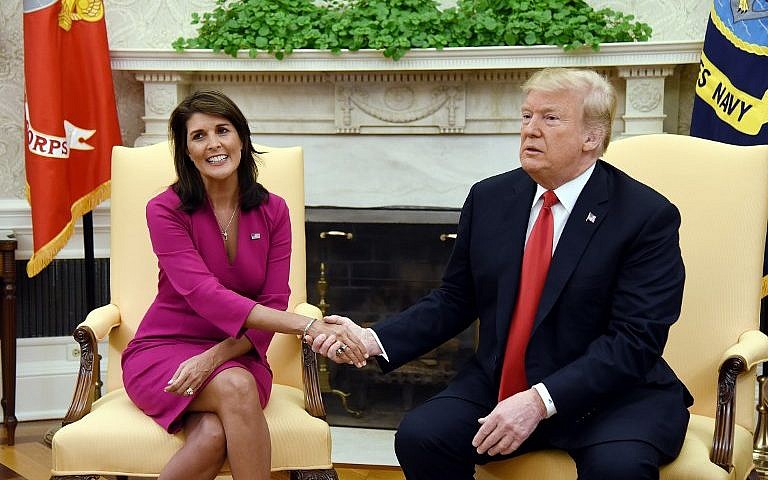'UNRWA teaches children to blow themselves up'
In Jerusalem, Mayor Nir Barkat presented a plan to remove all UNRWA operations from the capital and begin providing full municipal services to the residents of Shuafat, where UNRWA operates schools and clinics without Israeli permission.
The Jerusalem move follows a decision by the US to cut aid to UNRWA because it is an organization that perpetuates the refugee problem instead of acting to solve the issue.
Arutz Sheva spoke to Bassam Eid, a human rights activist who has been studying UNRWA's schools and institutions for years, bringing the paralyzed Palestinian Arab voices that have been struggling for years under UNRWA, Hamas and the Palestinian Authority.
"I have been saying for years that UNRWA has become part of the problem and not part of the solution," said Eid, "For 70 years, UNRWA has been managing the affairs of the Palestinian refugees and has not managed to reduce the problem or resolve the refugee problem within seventy years. "I am interested in continuing to manage the issue of the Palestinian refugees."
"I support Trump's decision to stop UNRWA funds," Bassem Eid said, adding that "65 percent of UNRWA funds go to salaries and the renting of buildings and offices, salaries of $25,000 a month and luxury vehicles. I want to close this organization so that its employees will be unemployed and become refugees themselves."
Eid also criticized the education provided in UNRWA schools. "I worked in several UNRWA schools in the territories and in Jordan, and children aged 9-10 want to be killed and kill Jews and to release their people. "Who taught you that?" I asked. They said that was what they were learning in schools, and I asked teachers at UNRWA schools in Jordan if children were taught to blow themselves up and be killed. They said "of course. How else will they liberate the land from the Israeli occupation? " UNRWA is aware of this, and the international community knows that all UNRWA studies are full of hate and incitement. The international community continues to inject funds because it is against Israel."
Top UNRWA official says he champions both Israel and Palestinian refugees
Just a few years ago, Peter Mulrean was defending Israel in what is arguably one of the most hostile diplomatic environments for the Jewish state.Human Rights Council Elections Set to Deliver Another Record-High Number of Rights-Abusing Members
In 2013, as the US deputy ambassador to the United Nations Humans Rights Council in Geneva, he hailed Jerusalem for its “strong commitment and track record in upholding human rights, political freedoms and civil liberties.”
Today, Mulrean is a senior official at UNRWA, the UN agency dealing with Palestinian refugees, arguably the most hated organization in Israel and one the US government recently called “irredeemably flawed.”
From his office just across from UN headquarters in Manhattan’s Turtle Bay, Mulrean promotes the agency on the world’s largest international stage.
The director of UNRWA’s Representative Office in New York decries the recent budget cuts by the US administration and passionately rejects the often-made argument that the agency perpetuates the Palestinian refugee problem and stands in the way of a realistic solution to the Israeli-Palestinian conflict.
The U.N. holds annual “elections” for its Human Rights Council this week and, once again, none of the five regional groups are offering any competition for the vacant seats. Instead all five are putting up “closed slates” of candidates – a practice seen as one of the main reasons rights-abusing regimes are able to secure seats.
Indeed, the absence of competitive slates makes it possible to predict, three days before the U.N. General Assembly holds the exercise in New York, that next year the 47-member HRC will have 14 members – 29.7 percent – that are graded “not free” by the veteran democracy advocacy group, Freedom House.
That’s a record high for “not free” countries on the 13-year-old council, tied only with the 2018 membership.
Failing unexpected last minute developments, the 2019 HRC membership will comprise 23 “free” countries, 10 “partly free,” and 14 “not free.”
The presence on the U.N.’s top human rights body of regimes with poor human rights records was one of the main reasons cited by the Trump administration for its decision to withdraw over the summer, following what it said were unsuccessful attempts to reform it.































.jpg)





